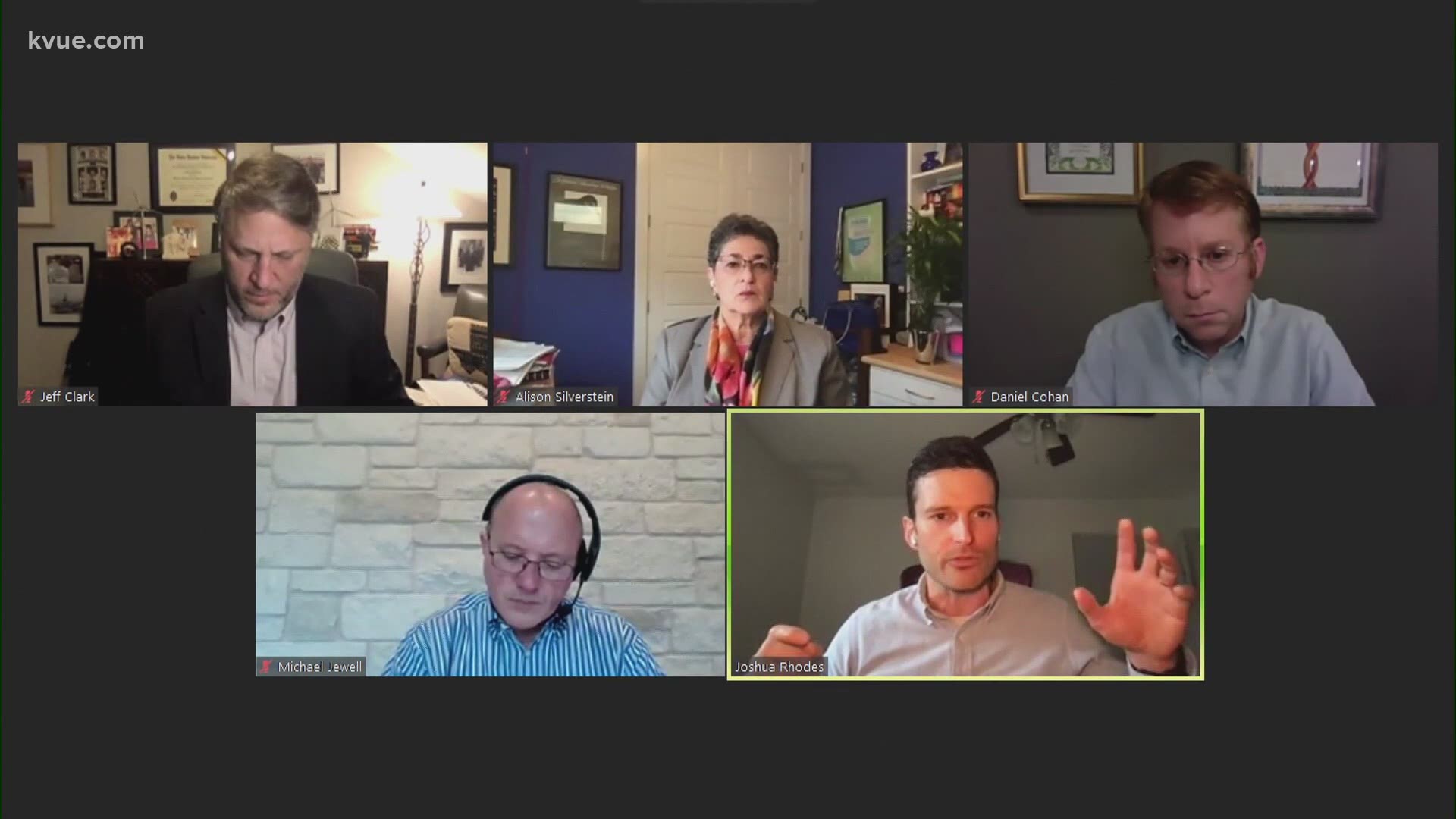AUSTIN, Texas — Many questions remain after the storms that shut down power across Texas. Many of them are about what went wrong.
Earlier on Wednesday, a group of experts sat down and talked about what they think happened and what needs to change.
It's a reminder of the snow that many of us were staring down last week.
"We all lived through the events of last week. My family was without power and water," said Jeff Clark, the president of the Advanced Power Alliance, who moderated the event.
Alongside him were four energy experts – Alison Silverstein, Daniel Cohan, Josh Rhodes and Michael Jewell.
Silverstein is a Texas-based consultant on transmission and distribution, system reliability, energy efficiency, demand response, renewable energy development and smart grid issues.
Cohan is an associate professor of civil and environmental engineering at Rice University and director of the Cohan Research Group at Rice.
Rhodes is a researcher at The University of Texas at Austin Energy Institute and Webber Energy Group, and a founding partner of IdeaSmiths LLC.
Jewell is the managing partner of the firm Jewell & Associates, which works on electricity, energy, telecommunications and other administrative issues before the Texas Legislature and state agencies.
All of them are based here in Texas and all saw what happened last week. The gist of it is we were needing more power, and natural gas as a resource wasn't able to keep up, and that led to others also not holding up.
"While power plants were wanting to consume natural gas to make that electricity, homes were wanting to consume natural gas for heating, and at the same time, our supply out of West Texas, we had wells freeze off, gathering lines freeze – we weren't able to put more gas into the system and we ended up short," said Rhodes.
Ending up short meant darkness for many. Of all the things that led to this, it wasn't just one source failing but rather an over-taxing on the whole system. Cohan described it simply when he compared it to the Big Short.
"We slice up our risk, we slice up our pieces," he said. "What we saw in the planning here was accounting for one failure or a few failures at a time. They had one scenario where wind output might go down they had one scenario where demand might go up ... We didn't realize that every single one of those things could fail at once and cascade upon each other."
This means it wasn't just one source that stopped working, but multiple, and the cascading effect caused 40% of the state's power to go off the grid.
Multiple things came together into one failure, which the experts called a systemic failure across the whole grid.
Many people want to blame the legislature, some blaming ERCOT, and others blaming individual energy manufacturers. Silverstein said it's not just one villain in this situation.
"You want to know who to blame, it's all of us. Look in the mirror. It's not just legislature, it's not just the people at ERCOT or the folks on the board," she said. "It's all of us who sat down enjoying our cheap energy and our cheap natural gas and cheap water for so long."
Also, for weatherization, it's not as easy as some make it seem. There are other factors Jewell said we need to talk about, but it still would help.
"Just saying we need to weatherize everything – we need to be sure that we're smart with regard to what we do because Texas also has really high heat," he said. "Some weatherization initiatives can actually reduce power plants to operate in real high heat, so we have to have a Texas approach to weatherization."
All of these are showing some bigger issues with how Texas handles electricity, and things we hope we can avoid the next time any big weather event hits us.
The call was co-sponsored by Advanced Power Alliance and Conservative Texans for Energy Innovation.
PEOPLE ARE ALSO READING:

